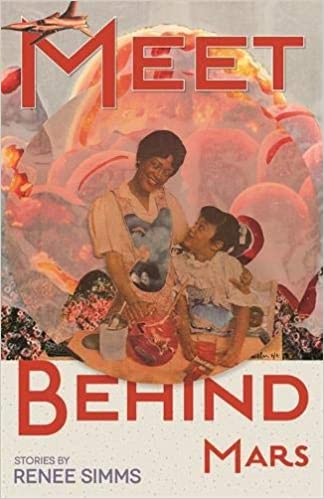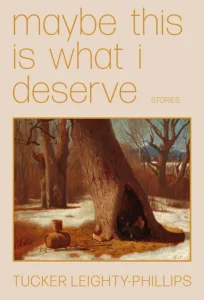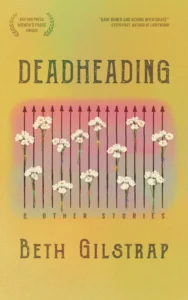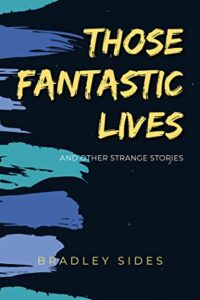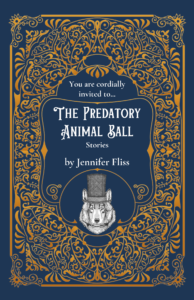Reviewed by Jody Hobbs Hesler // May 28, 2019
Renee Simms’ outstanding debut collection, Meet Behind Mars from Wayne State University Press, captivates with fully-imagined characters who are writers, parents, adopted children, rocket scientists, pawn clerks, poets, professors, and children and spouses of Motown stars. They face fatal illnesses, crash-testing monkeys, “The Yellow Mustard Penis Incident,” as well as unsympathetic writing workshops, high school reunion planning committees, and post-Katrina PTSD.
The cornerstone of the collection may well be its eponymous selection. Every story sparkles for its own reasons, but “Meet Behind Mars” channels all the various types of excellence into a single story. We have finely tuned sentences, wry humor, deeply poignant moments, along with fresh and sharp observations of African-American families living in predominantly white communities in America today.
Told in epistolary form of emails and voice mail transcriptions, “Meet Behind Mars” builds a case in defense of Gloria Clark’s son, drawing from communications she has exchanged with an array of school administrators over the course of his schooling. “Dear Dr. Lutz,” the story begins, “You’ve requested that I write a statement to the school board about ‘The Night of the Yellow Mustard Penis,’ and I’ve tried to pull together all of the evidence that I have.” This evidence documents the relentless and increasingly ridiculous barrage of accusations teachers and students have levied against her son since he was small.
Her reports of these lead-up incidents make, then hammer home, the case that Ms. Clark and her son are treated as novelties, at best, and threats, at worst, within their community purely because they are black in a mostly white world:
“When I remember these incidents, Dr. Lutz, I recall what my sister said when I told her that I was moving to [their mutual neighborhood of] Durant. ‘Why you moving out to Mars?’ she asked. ‘There aren’t a lot of people who look like us out there.’ And I defended this place to my sister. I didn’t tell her that Durant wasn’t Mars, because most days it feels like a foreign planet. But I told her that I had a right to sail across the universe if I wanted, and to meet behind Mars with my beloveds like Cheryl Lynn sang in 1978 when we were twelve and fourteen years old and listening to her song on our mother’s car radio.”
To underline the breadth of time and experience she covers in her appeal to Dr. Lutz, Ms. Clark says, “I feel like I can’t tell one story about a giant mustard penis because it’s not about a mustard penis only, but about all of these incidents together, in context, and through time. It’s also about education and the fact that I’m a black woman who lives alone with her son.” The punch of this conclusion adds danger to the playful sound of throws the absurdity of the notion of “The Night of the Yellow Mustard Penis”. During the “Night of the Yellow Mustard Penis,” several white 9th-grade girls draw a giant penis out of mustard on the front walk, get as far as “fuck y” on the garage door before the mustard runs out, and throw a watermelon and Kool-Aid jammers onto the scene. Inside, Clark says, “[m]y son was having a birthday sleepover …. Jesse’s guests were 9th grade black boys who also go to the school.” The crude racially-motivated meanness of the mustard-penis-related acts doesn’t surprise after we’ve read the catalog of other hateful incidents that have shaped Jesse’s school years. What surprises is Ms. Clark’s humor. “As punishment,” she writes, “I would like these girls to stand in front of the watermelon and mustard penis and perform an interpretive dance.”
The abject silliness of interpretative dance as punishment hits perfect pitch here. In solidarity with this frustrated mother, we, too, want someone held accountable and forced to expend energy and creativity to atone for years of her son’s mistreatment. Ms. Clark’s sarcasm sums up our ongoing American Tragedy: Systems of power in our country continue to refuse to recognize their own failures and so cannot begin to make amends for them.
“Meet Behind Mars” wraps up this collection, but each story before it sticks its landing, too. In “Dive,” Alex returns home to Tiny Oaks, Michigan, for her adoptive father’s 70th birthday party. While there, she announces her plans to find her birth parents, inspired by her own pregnancy and an accompanying desire to better understand medical and other less tangible histories. Her adoptive mother is Jewish, her adoptive father African-American, and neither have preserved meaningful relationships with their families of origin, leaving Alex “with what I liked to call my Trifecta of Absence. I had no ancestral information as an African-American. As an adoptee before adoptees had rights, I had no knowledge of my biological family. And I had sparse knowledge about [my adoptive parents], the kind but unemotional people who’d raised me up.” Alex’s drive to connect to a solid past conflicts with her family’s code: “They’d raised me to believe my personal history didn’t matter, that I could make it without knowing my past because I was strong. For too many years of my life, I nearly killed myself in service of that belief.” The story plumbs these complex family relationships as the narrator strives to map her emotional homeland.
In “High Country,” writer Hattie Vernon receives stilted feedback from a workshop led by a “celebrity author” at a conference: “It isn’t Romance. It lacks drugs, sex, hip-hop, guns. Believability! Black kids blissed-out on German disco? What was this, magical realism?” Hattie’s critiquers effectively articulate some of the suffocating biases as prevalent in the publishing world as in the world of writing conferences. In a clever renouncement of these oppressive expectations, the story spins gradually and satisfyingly into magic realism. Hattie’s husband Jervis failed to secure his parents’ help babysitting for their vacation after the conference, so Hattie will not have time to write as she had expected. At the start of their vacation, their car crashes into a cow somewhere outside Sedona, and Hattie wakes up in a truck among a group of Native Americans who turn out to be characters wanting her to write their stories. When she asks what happened to her family, “‘They’re gone,’ [one of the women] says. ‘Isn’t that what you wanted, sugar? For them to be gone so that you could write?’”
None of Simms’ stories perpetuate the stereotypes that Hattie Vernon’s fictional workshop-mates expect and demand. As readers, we should rejoice that these stories, and this collection, survived those gauntlets unscathed.
ABOUT THE REVIEWER
Jody Hobbs Hesler lives and writes in the foothills of the Blue Ridge Mountains. Her book reviews and author interviews have appeared in The Georgia Review, The Rumpus, [PANK], Change Seven, Buffalo Almanack, and elsewhere, and her fiction has appeared in Gargoyle, Raleigh Review, Sequestrum, Streetlight Magazine, Valparaiso Fiction Review, Prime Number, and other places. She holds an MFA from Lesley University and teaches at Writer House in Charlottesville, Virginia.


